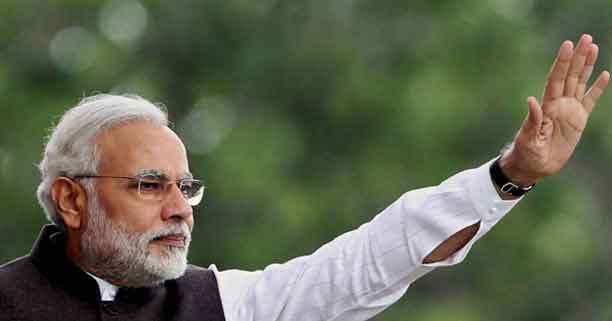Let’s Give Optimism a Chance
With his absolute parliamentary majority, keen management sense, charismatic personality and nearly unprecedented political clout, Prime Minister Narendra Modi has perhaps the best chance of any politician since independence to lift India out of its poverty. The first steps he must take include sorting out the government’s rotten finances, increasing the inflow of taxes, cutting bureaucratic red tape and initiating land reform. His early outreach to Pakistan was a promising sign – for if any of the resources devoted to military pursuits in these two desperately poor nations can be diverted to building their respective economies, we will all be better off.
Whatever your opinion of Modi and his controversial past, he appears well suited to confront the main obstacles that have long kept this nation from achieving prosperity – corruption, political haggling and incessant bureaucracy. India, like the rest of the world, is anxious to see which of the two Modis will hold sway: Modi the economic reformer, or Modi the Hindu nationalist. For the good of multi-cultural, secular India, let’s hope it’s the former. And let’s also hope his strong governing mandate will be carried out in the context of the country’s flawed yet durable democracy, and that the prime minister does not give in to his authoritarian tendencies.
Fifteen percent of India’s population is Muslim, and yet only one of Modi’s appointed ministers is Muslim. And the new Parliament has fewer Muslims than any since the early 1950s. Modi’s inaugural promise to “bring everyone along” is welcome, but it’s worth asking why he hasn’t been able to utter the word “Muslim.” Excluding minorities, or making them feel lesser or left out, is not a recipe for harmony or prosperity.
There’s no doubt that the Rashtriya Swayamsevak Sangh (RSS) and Hindu nationalists form the core of Modi’s support, but they’re not the main reason he is the nation’s leader today. Modi won because the young, the urban classes and the educated all saw in him a real chance for an economic breakthrough. And because the people of India today want jobs and opportunity, not handouts.
Other Asian nations broke out of their poverty by turning themselves into labour-intensive manufacturing hubs. That can happen here, too, with the right vision and policies.
The Confederation of Indian Industry said it would “build on its association with the Prime Minister to forge an extensive partnership with the new Government and facilitate a conducive climate for growth and investment.”
How to explain the Modi mania sweeping India and even our own state of Goa? Yes, it’s true the BJP spent billions of rupees on this past election, with an incredibly slick media campaign. And it’s true Modi speaks well and, as a tea-seller’s son, has a compelling personal story. It’s also true Rahul Gandhi was a particularly weak and largely absent opponent, and that Congress failed utterly to spread the word about Modi and his alleged complicity in the 2002 Gujarat riots.
In the end, the main reason behind the Modi mania is the people’s yearning for change. Yet winning by such a decisive margin can bring with it a burden of expectation that can lead to fast disillusionment. Some are already hoping for an end to the “honeymoon” period and for Modi to show his “true colours.”
“It’s clear that the RSS is pinning all its hopes on Modi and even unleashed its entire organizational and propaganda machinery to run his campaign. In return, the RSS expects that their long, unfulfilled agendas would see fruition under a Modi-led government,” Shezad Poonawala, a 26-year-old lawyer-activist, wrote recently.
However, if Modi, at the risk of alienating his mentor organization, is willing to keep that agenda in the background and focus on the economy, he is sure to win friends both at home and abroad.
The United States has already shown signs of beginning a “fresh chapter” with India’s prime minister. After Modi’s election victory, President Obama called to congratulate him and invite him to the US. With that in place, the rest of the Western world is expected to follow suit.
But Modi’s biggest struggles will be domestic.
His growth agenda is sure to face strong opposition from socialists, labourers and others. Environmentalists are particularly alarmed at the thought of Modi having a free hand and absolute majority, allowing him to do as he pleases.
“We should read the PM’s track record as Gujarat CM on environment to get a sense of which way Javadekar may be headed,” said Smriti Koppikar, an environmental journalist, referring to the appointment of Prakash Javadekar as the Union Minister for Environment. “He is, unfortunately, not among the two or three ministers who can stand up to the PM and defend independent decisions. That, for me, is the worrying part,” she said, pointing out what she called Modi’s poor performance on environmental issues in Gujarat.
Those close to Modi praise his leadership and organizational skills. And his call for “less government and more governance” is a welcome refrain. The United Nations ranks India 148th in the world in terms of per capita Gross Domestic Product, on par with Nigeria, Sudan, Ghana and Zambia (Pakistan ranks 155). Yet because of India’s sheer size and her youthful population, robust democracy and entrepreneurial spirit, with the right policies we have nowhere to go but up. Until now, however, we’ve lacked strong leadership to make it happen. Until now.
Steven Gutkin, a former bureau chief and international correspondent for the Associated Press, and Marisha Dutt, a former marketing manager at Dow Jones International and the Wall Street Journal, together run Goa Streets.




